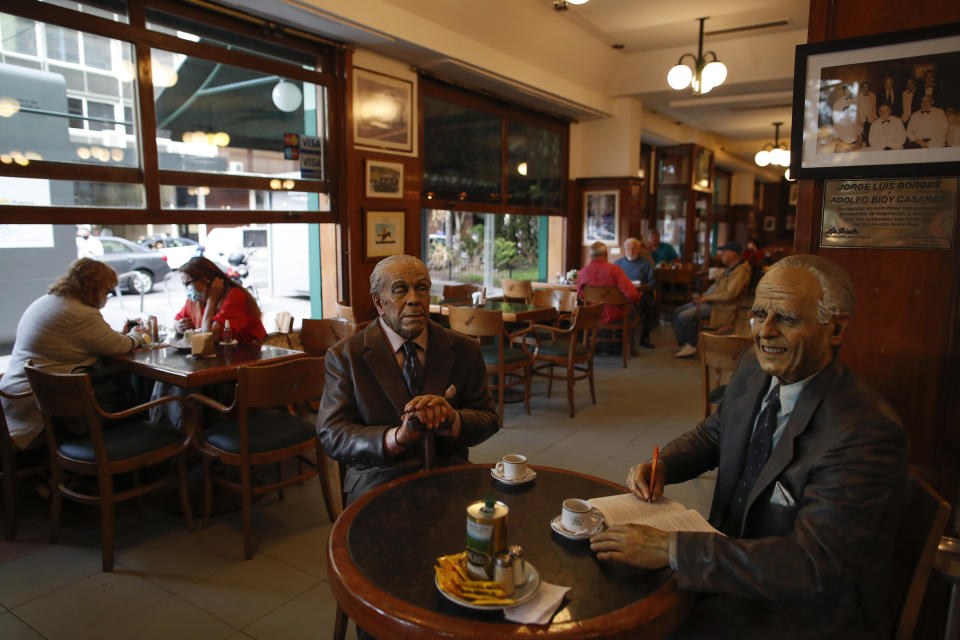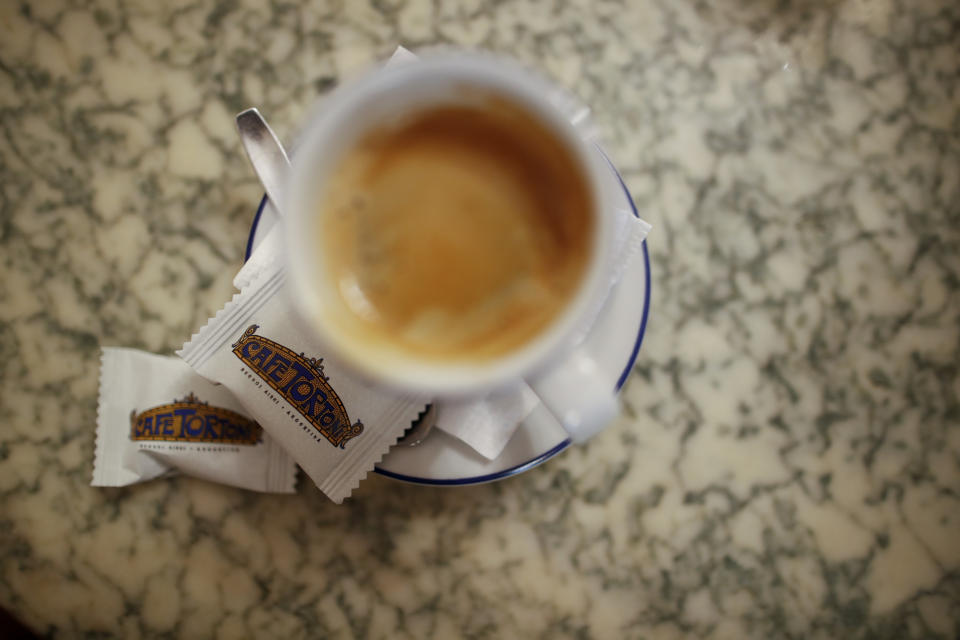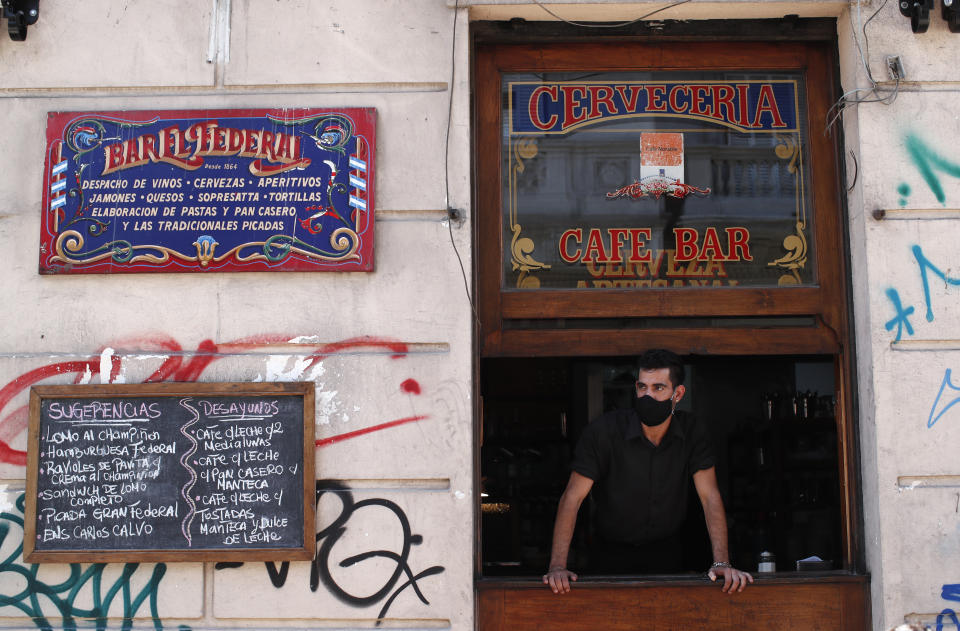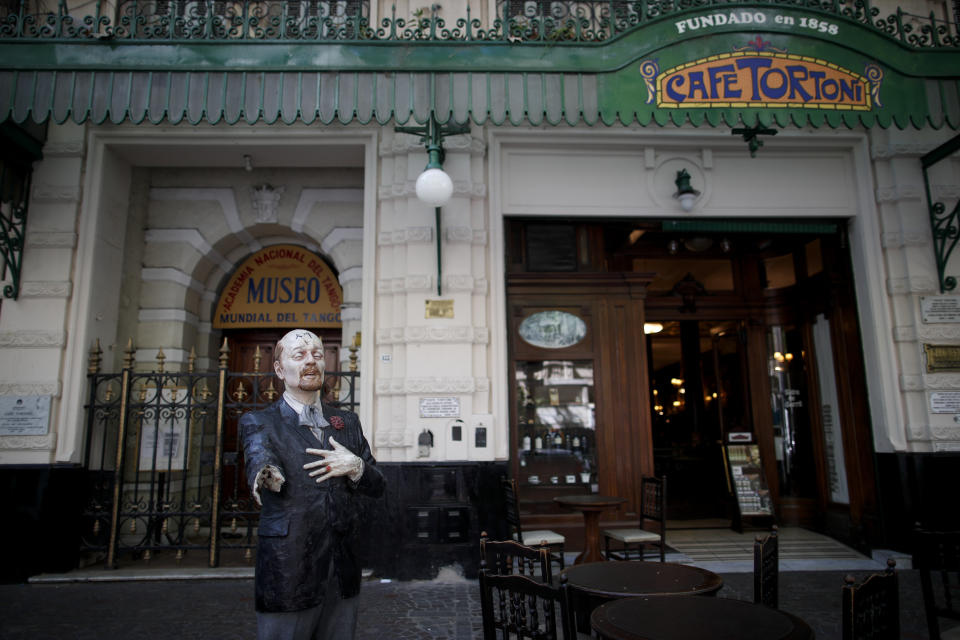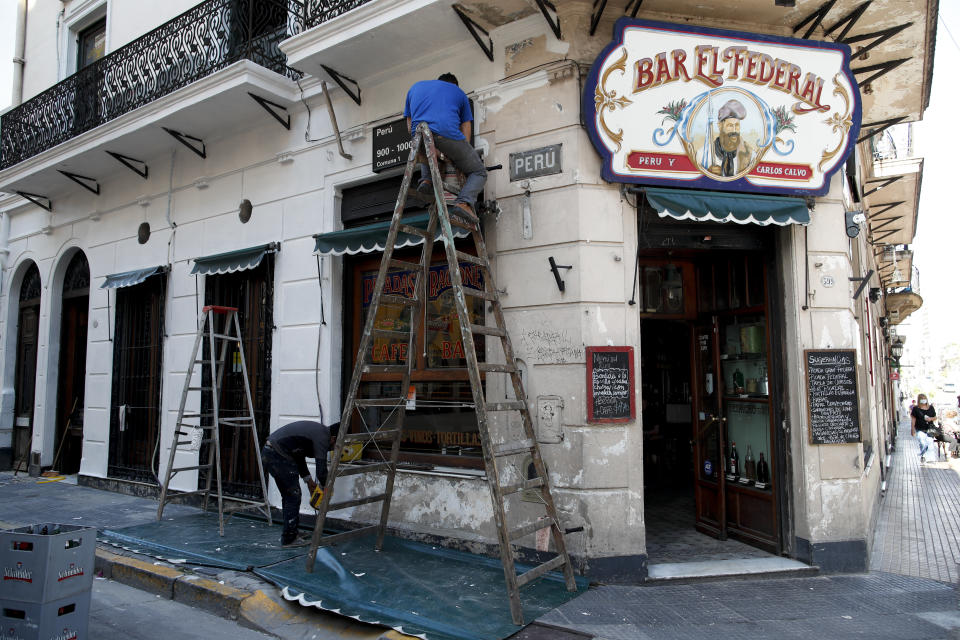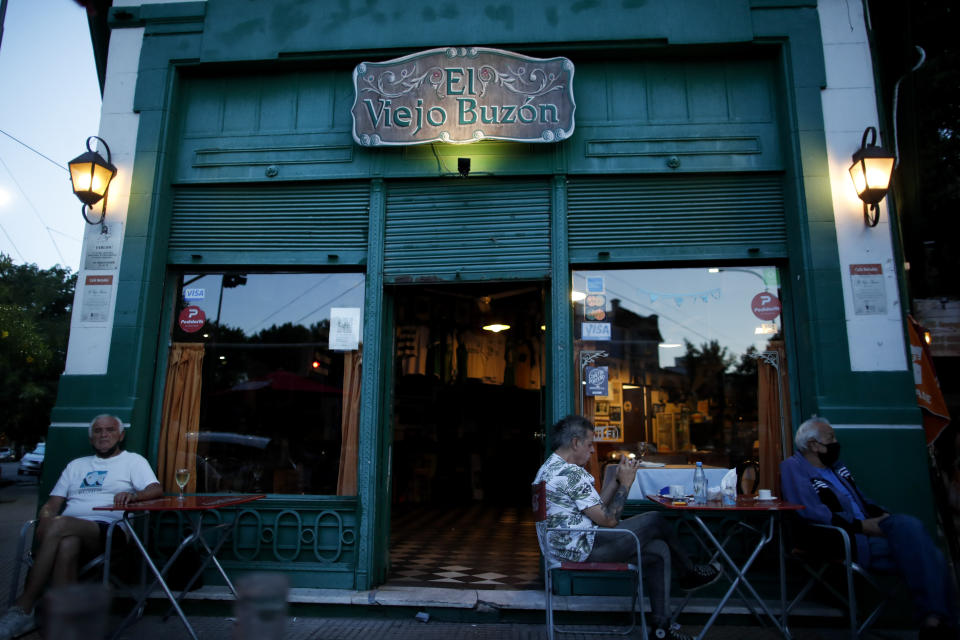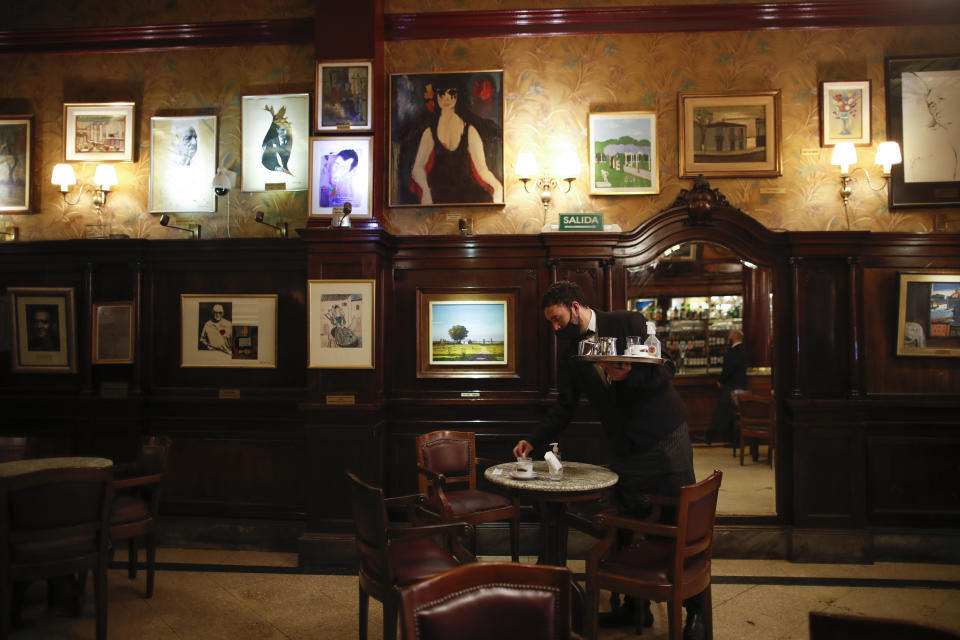BUENOS AIRES (AP) — Just nine months ago, a line would form each day outside Buenos Aires’ bustling Cafe Tortoni, people trying to get in to drink a cortado coffee in the Argentine Belle Epoque halls once frequented by writers and artists such as Jorge Luis Borges, Carlos Gardel and Federico García Lorca.
Now a few diners sit at tables set up on the sidewalk in front of the iconic cafe founded in 1858, and a handful more sit at socially distanced tables attended by two waiters carrying disinfectant sprays on trays. The usual roar of laughter, debate and lively conversation is eerily missing.
“This year has been very hard. ... Before the café was always full, you had to wait to get in,” said Nicolas Prado, one of the managers of Cafe Tortoni, located in the center the Argentine capital, which is known for its European flair.
Buenos Aires has long had a thriving cafe scene and its many historic cafes/bars — officially recognized as “cafes notables” for their contribution to the capital’s culture — are meeting points and tourist draws with their century-old architecture and nostalgia-soaked decor. Passing through their doors can feel like stepping back in time. But they are struggling to survive what their owners say is the worst crisis in their history, caused by the coronavirus pandemic and lockdown measures on top of a deep, years-long recession.
At least four of the city’s more than 70 officially recognized “cafes notables” have already closed since a quarantine was announced on March 20 and others are hanging by a thread after months of revenues near zero. Overall, about 2,000 bars, restaurants and cafés have closed in Argentina’s capital since the lockdown.
“There is a saying in the business that goes: ‘People bring people,’ and right now there are no people anywhere,” Prado said, referring to the tourists, residents and office workers who frequented the establishment.
The Tortoni still preserves its stained-glass ceiling, wooden walls and marble-topped tables where people used to play dominoes. Its salons held tango shows.
Singer and songwriting Carlos Gardel — the most important figure in the history of tango — had a table permanently reserved near a window. Argentine writers and novelists such as Borges and Julio Cortázar held literary meetings in its basement. Spanish poet García Llorca visited the Tortoni during his stays in Buenos Aires.
In order to overcome the pandemic, some cafe notable owners are trying to draw customers with outdoor tables and distancing authorized by officials. Other cafes are delivering meals and even trying to sell mugs or souvenirs online.
